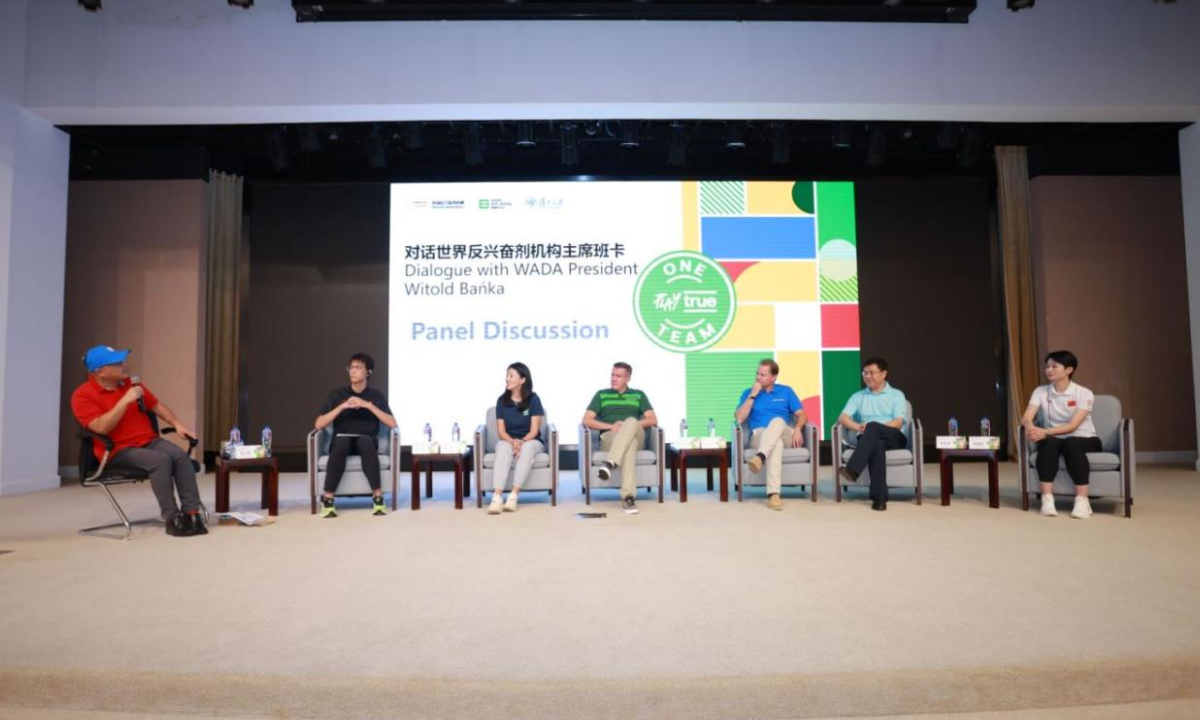WADA, CHINADA discuss anti-doping efforts with Chinese youngsters ahead of Hangzhou Asian Games

Photo: Courtesy of CHINADA
Anti-doping work has been an essential part of major sporting events in recent decades, and ahead of the opening of the Hangzhou Asian Games, an interactive event was held in neighboring city Shanghai where top officers from the World Anti-Doping Agency (WADA) and the China Anti-Doping Agency (CHINADA) discussed their work with local young people, including young athletes.
Titled “Play True, One Team – Dialogue with WADA President Witold Bańka,” the event was hosted by CHINADA at Shanghai’s Fudan University on Wednesday.
In his keynote speech delivered at the event, Bańka expressed his gratitude for China’s contribution to the anti-doping cause. “We [WADA] have very good, strong collaboration with our friends from China,” he said. “We are working very closely with our partners and stakeholders… so as to build a strong system and achieve our [anti-doping] goals.”
A strong anti-doping advocate, China has been actively promoting anti-doping in various aspects including legislation, education and the testing process. The revised Law of the People's Republic of China on Sports that took effect from January 1, for instance, addresses the issues of protection of athletes’ rights and fair play in its newly added “Anti-Doping” chapter, and encourages research into anti-doping science and technology as well as equipment and methods.
At the Wednesday event Li Zhiquan, director general of CHINADA, said in his keynote speech that China has spared no efforts to achieve the goal of “zero occurrence” of doping in major sports events.
No ADRVs (anti-doping rule violations) have occurred in the Chinese sports delegation at major international events in recent years, such as the Tokyo Olympic Games and the Beijing Winter Olympic Games, Li said.
“Win clean medals” is one of the core values of Chinese sport, he said. “China will continue to actively participate in international affairs, and contribute more Chinese wisdom and experience to the development of anti-doping work all over the world,” he noted.
Education plays a significant role in the current increasingly complex anti-doping situation. At the event, Yang Yang, an Olympic champion in short track speed skating and vice president of WADA, said that for athletes, it’s important not only to submit to doping tests as required, but also to voluntarily reject doping in the first place.
“I believe that all athletes yearn to become a respected champion and a true competitor since childhood,” said Yang. “To protect the original aspirations of these athletes, so that they can realize their dreams along with the value of clean sport, this is the meaning of anti-doping education.”
Two representatives of Chinese athletes also shared their personal anti-doping experiences and feelings at the event. “WADA’s contribution convinces us that our playing field is clean and fair,” said Olympic taekwondo champion Wu Jingyu.
“As an athlete, it’s important to learn and grasp the anti-doping code and regulations, especially how to prevent unintentional anti-doping rule violations,” said high jumper Wang Yu, a gold medalist at 2018 Jakarta Asian Games. “There is no shortcut to success,” he noted.



